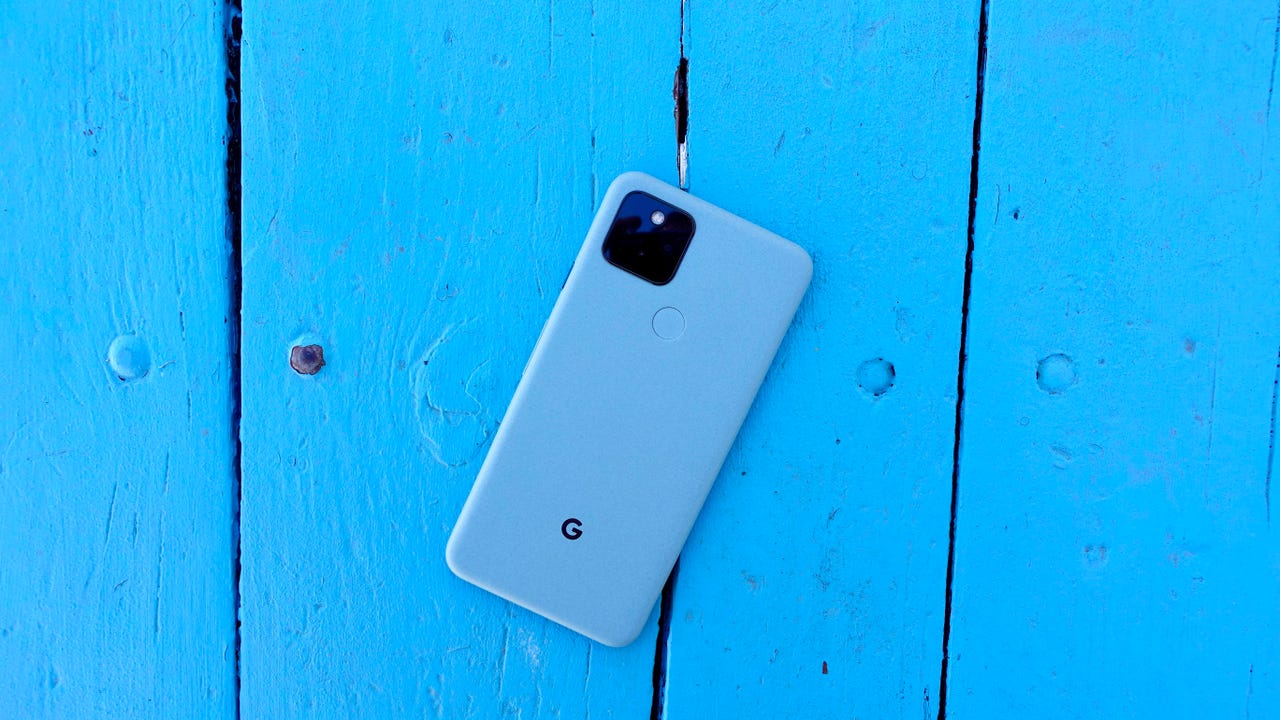Google commits to using recycled materials in all new products by 2022

Google is sticking to its plan to have all of its products include recycled materials by 2022, this year designing its new Pixel and Nest products to incorporate the re-use of otherwise wasted resources.
It is only part of the devices that are comprised of re-used materials, however. In the case of the Pixel, the back cover is made with 100% recycled aluminium.
See also: Google Pixel 5 first impressions: Where was this phone last year?
"This is our first phone to incorporate recycled aluminium, which not only eliminates the use of mined aluminium in the enclosure and reduces waste, it also lowers the carbon footprint of manufacturing the enclosure by 35% compared to using virgin aluminium," Google wrote in a blog post.
The new Nest Audio contains 70% recycled plastic across its enclosure parts, including the acoustic fabric, and is covered in the same sustainable fabric the search giant introduced with the Nest Mini last year. For the latest Nest Thermostat, Google said it made the trim plate from 75% "post-consumer recycled plastic".
"Google's focus on incorporating recycled materials in our hardware design not only supports our sustainability commitments, but also enables our supply chain partners to confidently invest in and develop these types of materials so that the wider consumer electronics industry can use them too," the blog continues.
Google has also updated a handful of other climate change goals that it set last month, including committing to using recycled or renewable material in at least 50% of all plastic used across its hardware products by 2025.
"Our new 50% commitment raises the bar well beyond industry standards. We hope this is a milestone on the path to a future where we design out waste and pollution and keep materials in use longer," Google said.
See also: The Internet of Wild Things: Technology and the battle against biodiversity loss and climate change (TechRepublic)
The company is also committing to achieving UL 2799 Zero Waste to Landfill certification at all final assembly manufacturing sites by 2022 and by 2025, it is also hoping to make its product packaging 100% plastic free and 100% recyclable.
"We've already made a reduction in plastic use in our packaging since 2016, but we have a lot of hard work ahead in order to meet this new goal," the blog says. "To get us there, we need to uncover alternative, recyclable materials that will still protect our products. It'll take partnering with our suppliers, tinkering in the lab and sharing learnings across the industry, but we'll get there."
The updated goals build on Google's commitment to operate with carbon-free energy for 24 hours, seven days a week across its businesses worldwide by 2030, starting with its data centres and offices.
HERE'S MORE
Google commits to run using carbon-free energy by 2030
It's the next step for the tech giant since becoming carbon neutral in 2007.
Google, Amazon make sweeping renewable energy commitments
The new investments and promises come a day before employees from Google, Amazon and other tech companies stage a walkout to protest the industry's role in the climate crisis.
Google's new tool lets you see how polluted these cities really are
Google launched a free online tool today that provides urban planners with informed data on selected cities' carbon footprint.
